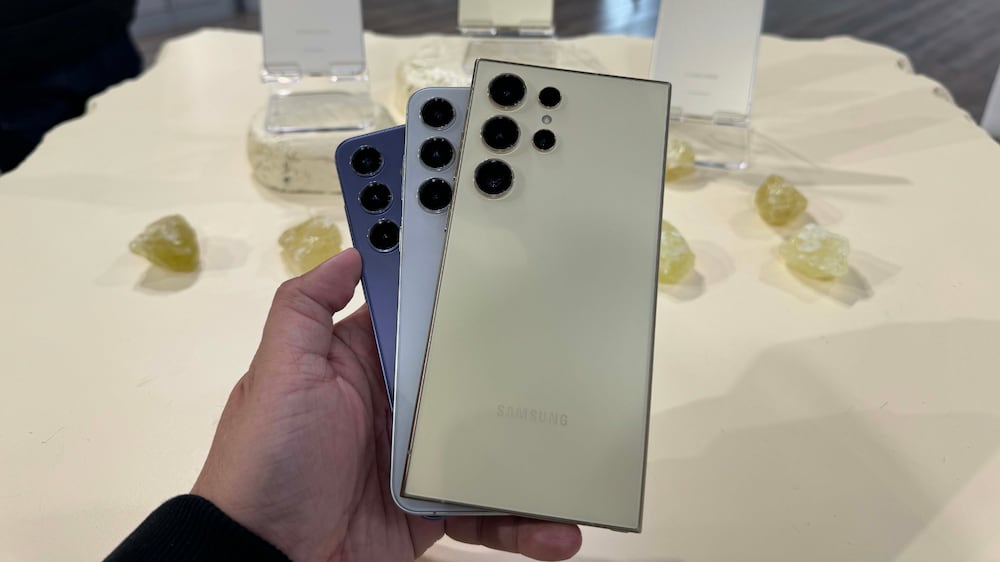Samsung Gulf Electronics is targeting a double-digit rise in its television market share in the GCC with a new line-up of artificial intelligence-powered TVs coming with “world-first” features.
The company's new flagship TV comes with its self-developed NQ8 AI Gen3 processor, capable of performing neural tasks two times faster than its predecessor, it said at a product unveiling in Dubai on Wednesday.
The chip's neural networks have increased eight-fold to 512, allowing it to process tasks, from picture and sound adjustments to adapting to 4K and 8K displays, with greater speed, it said.
A neural network is an AI technique that teaches computers to process data similarly to the human brain.
“We're targeting double-digit growth compared to last year,” Nikola Aksentijevic, director of Samsung Gulf's visual display division, told The National.
The 512 neural networks “is the first [in the world] now to actively and proactively” process images and sounds on Samsung's new TVs, he added.
“Market share is always important and at the forefront but not the key element. AI is supposed to help give the ultimate experience … this will allow us to really cater to consumer needs.”
TVs remain a key consumer electronic product despite the rise of mobile devices which have become alternatives for watching content from streaming services.
Samsung, however, has consistently kept pace with market demands and is locked in a battle in the smart TV sector with the likes of fellow South Korean tech major LG Electronics and Japan's Sony.
Seoul-based Samsung maintained its leadership in the global TV market for the 18th consecutive year with a more than 30 per cent market share last year, according to a February report from industry data tracker Omdia.
Samsung and LG are also expected to drive shipments of OLED displays, the panels used in advanced TVs, this year. The market is projected so post a 123 per cent annual growth after a 415 per cent surge last year, London-based Omdia said in a report on Thursday.
Samsung's enhanced TVs are in line with its efforts to be a major player in the highly-competitive AI race.
The company in January introduced Galaxy AI on its S24 smartphones, which assists users in key tasks, from live translations and transcriptions in chats and calls, to editing images and searching with images.
It is powered by Samsung's Gauss machine learning platform, which it launched in November – indicating its official entry into the generative AI race.
Samsung is also planning to extend its AI services into more product categories, Mr Aksentijevic said.
“The whole objective for us is inter-connectivity with pure emphasis on smart things, with the TV at the centre, allowing all connected devices to be controlled from one location,” he said.
“The idea is to make life easier – not to intrude or be invasive but to be complementary to lives and alleviating certain challenges.”
Earlier this week, Samsung announced that Galaxy AI began supporting Arabic to boost the localisation of content on its platform.
The latest language pack, which included Indonesian and Russian, takes the total number of language support to 19, and is available on Galaxy AI's translation, chat and transcript features.
Unboxing the Samsung Galaxy S24 Ultra








